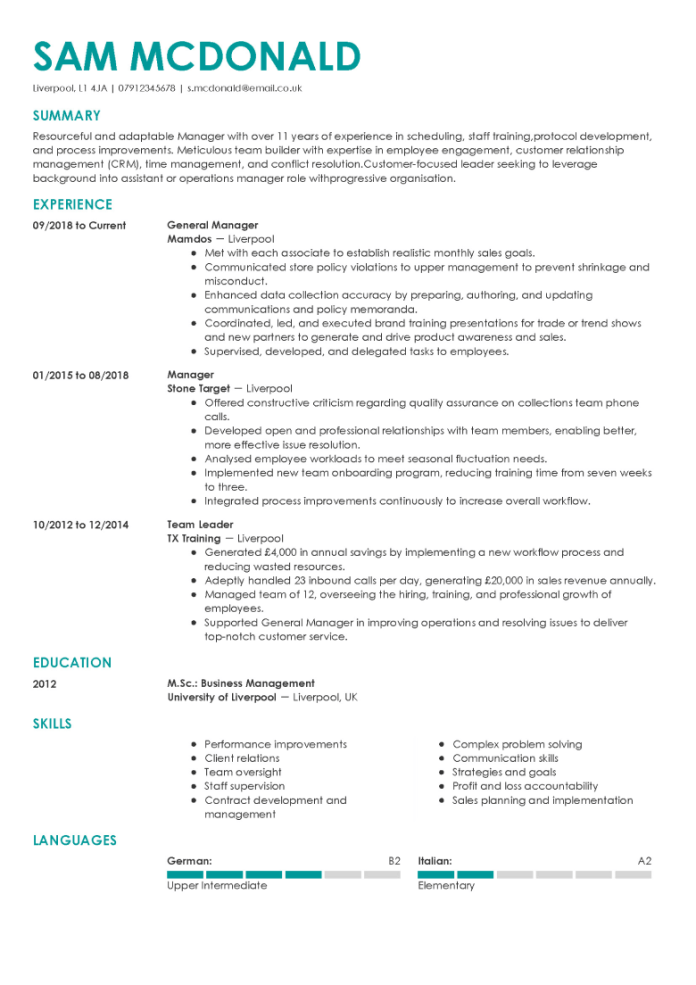Are you looking for a job this New Year?
If you answered ‘Yes,’ the following are the top six things that recruiters say can put them off a resume:
Cheesy cliches. “Spear-headed the implementation”. No, Lancelot. “Led, managed the implementation”, as boring as they are, are actually better suited and more humble than catchphrases. Not an automatic “Reject” pile, but definitely a potential for that.
Cockiness. There’s a fine line between selling yourself and becoming narcissistic. Believe me or not, but cockiness shines through the resume before you even talk to the candidate. You’re not the “best candidate”, you may be a “great fit”.
In response, Yohana Madaki, says, “I also dislike people using cliches on their resume like “spearhead”, “trailblazer”, “leverage” and “champions” sound like the words of a junior corporate drone who wants to be seen as more important than they are.”
Objectives. Sorry, but this is a waste of space because it’s nothing but a cookie-cutter template. Instead, use Summary of Qualifications. Or just an extra line break.
A recruiter, Simon Olaleke adds, “In my 20+ years of looking at resumes, I have not seen a single one where objective told me anything valuable about the candidate. To me, this is more of an archaic feature grandfathered from a couple of decades back that bears no true value, similar to references available upon request.
List of qualifications on the other hand can be quite helpful in listing all skills in a bulletpoint or comma-separated listing style. This is particularly useful for IT jobs where you can’t possibly describe every single technology or programming language under each job you had.”
A respondent, Grace Smith, disagrees, saying, “Why would you completely dismiss objectives while focusing on qualifications? Resume job qualifications are only one aspect of a candidate, and I’d wager that the direction which that candidate would like to take their career will have a larger impact on how well they fit within an organization.
“I’ll agree most resume objectives are too narrow or inapplicable to the situation, but if they’re well done I think they can be very informative. It’s all about making words matter and properly presenting yourself. If objectives don’t matter to an employer then I’d really question how much they’re truly interested in the person they’re hiring.”
Bad format, spelling mistakes. “Manger of Operations” who can’t even pronounce their title properly has no place on job boards.
Autobiographies. Yes, one-page resumes may be the thing of the 90s, but there’s still a dire need to trim the fat off your resume. Stop posting novels and leave only what’s relevant.
No one cares to see that you had a fourteen-month gig in 2001 developing JavaScript for a leading insurance company, if that skill has nothing to do with what you are looking to do.
A former job applicant who resides overseas, Sanya Olulade, however says this depends on the country.
“In India I had single page resume and loved it. Moved to NZ and got rejected in 10 jobs, straight. I then happened to talk to a recruiter who mentioned that he would never hire someone with one pager. I don’t remember the exact comment but he said if people couldn’t explain their career on 3–4 pages, they weren’t worth interviewing. He showed me dozens of resumes to take inspiration – yeah, that’s the word he used and I laughed! which made the rest of the meeting very awkward!” Verma said.
Another respondent, Bisola Balogun-Johnson, says, “Even in the US, I have seen some companies prefer long 3–5 page resumes. Most of them I know are service companies or practically body shops. They want you to list every possible technology, every domain, every company you had worked on.”
One other individual, Chinedu Okereke, says, “I made a decision a while back to spill my resume over to 2 pages, and am now struggling to keep it from hitting 3 pages. I wouldn’t want to work at a company which uses artificial pedantic rules to judge candidates.
“My resume is clear, and reviewers have consistently told me that it explains in just the right amount of detail what employers would want to know about my software engineering capabilities and accomplishments. I very rarely if ever am passed over for an initial phone screen.
“I think the one page rule, if there ever was such a thing, is dead.”
Another person, Fola Deniyi, argues that, “Sometimes, the purpose of a resume is to get an invitation for a job interview. Not too many details, just enough key words based on scope of the job. Besides, if someone spills all their stuff in 3 or 4 pages, then what is the point of an interview. This might be the reasoning for a one-pager.”
Pronoun: Many job recruiters say the use of pronouns such as ‘I’ is preposterous on a CV and that it is a warning that the applicant might not be a team player.
In general, a respondent, Abubakar Uba, says, “I agree with everything except #5. Anyone other than a recent college grad is generally going to have a resume a bit longer. Two pages is okay, 3 is not out of the question (especially for an engineer).
“One I would add – Bullet point everything – no run-on paragraphs. Just a glance at paragraphs can put you in the reject pile. Bullet points gives the impression of an easier read – even it the resume says the exact same thing as the paragraphs, it looks better and is easier on the readers eyes. No paragraphs, except in an opening summary and, even then, it should only be 3–4 sentences, maximum.”
Conclusion: Just find a balance in all the arguments. Best wishes to you this New Year!


